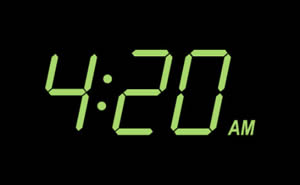Inside/Out with Marianne Knuth, founder of Kufunda Learning Village
Kubatana.net
Describe yourself in five words?
I’m a woman that loves to connect with other people’s passion and spirit.
What’s the best piece of advice you’ve ever received?
To listen to my heart and not to look for answers from outside.
What’s the most ridiculous thing you’ve ever done?
I think I suppress those memories (laughs).
What is your most treasured possession?
My Tingshas, they’re Tibetan bells. We use them for dialogue and circle work. Sometimes to mark the beginning with a sound and then people can just sit and be, and we always end with it. It’s marking space in a way that’s more sacred.
What do you regard as the lowest depth of misery?
Probably losing hope, related to that, losing faith in yourself and your ability to escape whatever situation you’re in. To think that there’s nothing more you can do and you don’t have that internal resource to rise above whatever is challenging you.
Do you have any strange hobbies?
No I don’t think so. I like to run, do yoga, meditate, and read.
What do you dislike most about your appearance?
One of my teeth sticks out, but when the dentist said I could have it changed I realised that I would lose my capacity to whistle, so I decided not to.
What is your greatest extravagance?
A really nice glass of red wine and Lindt dark chocolate.
What do you have in your fridge?
Freshly milked cow’s milk, and I just went to the Doon Estate Market on Sunday, so I’ve got the most incredible bream paste. Otherwise there’s the usual yoghurt, juice . . .
What is your greatest fear?
For some reason the thing that jumped into my mind was that Marianne Williamson quote about how our greatest fear is not that we’re inadequate but that we are powerful beyond measure. I mean I don’t go to sleep thinking, ‘I’m so afraid that I’m powerful’ but I have noticed that there are times when I have an opportunity to shine, that I’m afraid of taking away attention from someone else. Another worry is that this constant source of energy and belief that everything is possible, what if that dries out, and that would be the worst possible thing that could ever happen.
Are there times when you feel that flame flicker?
I’ve just come out of four years that’s been an all time low. I think I made rational choices which was alright, but it wasn’t coming from that place of inspiration, where I know if I work from that place anything is possible. Returning to Zimbabwe was a part of listening to my inspiration.
What have you got in your pockets right now?
I don’t have anything in my pockets.
What is your favourite journey?
The journey of creating Kufunda. The journey of coming home and creating something. It wasn’t a matter of choice. Every cell of my body was directing me back home.
Who are your heroes in real life?
Ghandi was a real inspiration for me, now I think he’s a little bit too austere. I think we can do good in the world and enjoy life at the same time. A lot of my heroes are people who have chosen slightly different avenues than what we see as traditional success, but that are so full of life and vitality and inspiration. There are people who are creating similar things like I’m doing at Kufunda, but all around the world. There’s Manish Jain from Shikshantar in India. His mission is to create learning societies. There are two women in Greece, Sara Whiteley and Maria Scordiales, their enquiry is around living wholeness and they’ve created a beautiful centre in Greece where people gather a few times a year, and they do work in Europe and apply their work to real issues and problems and they bring a feminine way of negotiating to the corridors of power.
When and where were you happiest?
In the early days of Kufunda, when I was letting purpose flow through me, and also when I was at university. I became president of an international student organisation called AIESEC. That for me was the first real lesson that anything is possible.
What is your biggest vice?
For all this talk about collaboration and needing each other, I’m not very good at asking for help. I’m good at creating process where people can work together, but when things get stuck, I still think that I have to figure it out myself.
Interviewer: Do you have a stubborn streak?
Somewhat. Which is probably why collaborations are so important for me because I’m still learning it (laughs).
What were you like at school?
I went up to O level here and I was very studious and hardworking. Then when I went to Denmark, I kind of stayed like that, but suddenly there was this big world and I was free. I was exploring life and doing all sorts of other things that my parents didn’t think were as important as book learning.
What are you doing next?
Right now I’m in a place where I’m doing things that inspire me, whether it’s at Kufunda or elsewhere and I want to write about the last ten years of my life and see what comes out of that. I’ve been so busy for such a long time, and it feels so good to have time for an afternoon to write.










